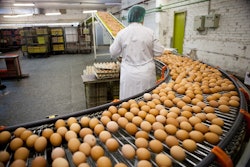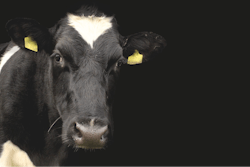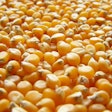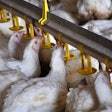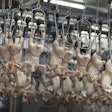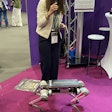
A new technology that uses two types of nanoparticles: magnetic nanoparticles (MNPs) and gold nanoparticles (GNPs) along with a biosensor system could better detect Salmonella throughout the turkey supply chain.
“This is a collaboration between industry and academia to create rapid detection methods so that we can do our job better and meet the potential requirements of the U.S. Department of Agriculture (USDA),” Tina Conklin, VP, technical services, Michigan Turkey Producers Cooperative, said.
At the 2023 Poultry Tech Summit, Conklin will discuss how the technology can be applied to monitor the presence of Salmonella on various critical points on poultry farms and in poultry processing.
Rapid Salmonella detection
Problems concerning the presence of Salmonella in poultry production and processing have been a constant challenge. Despite the cooperation between private companies and the government, Salmonella outbreaks still occur.
One possible reason for these unfortunate occurrences is the gap in monitoring the presence of the pathogen. To achieve effective monitoring, the timely release of results from rapid detection techniques is critical.
The procedure works based on a two-pronged approach. The MNPs capture and concentrate bacterial cells from the samples based on their ability to attach to bacterial cells. On the other hand, the GNPs are modified with oligonucleotide probes to bind with the DNA of the target. The result is a solution that turns red when Salmonella is present in a sample.
Initial research shows that the procedure can provide results within four hours from sample preparation to release of results. The biosensor signal is discernible with the naked eye and can be easily interpreted using a smartphone application. This promising end-to-end rapid detection procedure can be used on complex samples.
“I look at this as a verification tool,” explained Conklin.
For example, if the technology detects Salmonella on a turkey farm, it gives veterinarians the information necessary to vaccinate against Salmonella. Once vaccination is performed, producers are able to retest, verifying how effective the treatment is.
Attend the 2023 Poultry Tech Summit
Join an exclusive international gathering of industry-changing innovators, researchers, entrepreneurs, technology experts, investors and leading poultry producers at the 2023 edition of Poultry Tech Summit on November 6-8 at the Hilton Atlanta Airport in Atlanta, Georgia.
Attendees can expect the same groundbreaking innovation and insightful presentations that made the previous events well-attended with deep dialogue on new prospective solutions and next-generation technologies. Poultry Tech Summit focuses on the transition of innovative technologies into commercial applications to advance the poultry industry.
Registration for this event is now open. Early bird savings are available.




